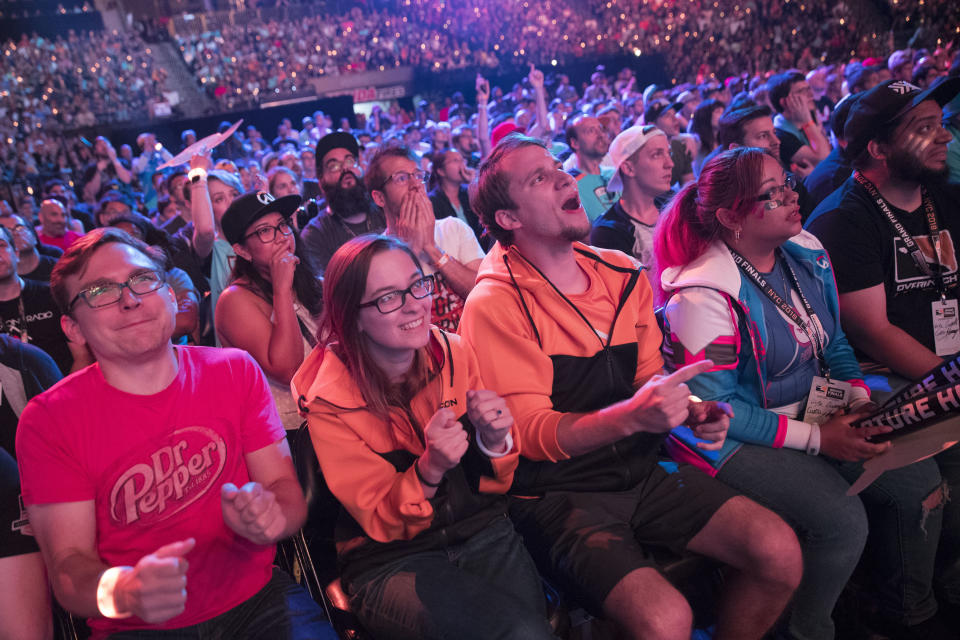Super League Gaming CEO: Today's gamer is 'not who we think'
Super League Gaming, which holds and broadcasts live video game competitions (“esports”), went public on the Nasdaq on Tuesday and got a chilly reception: shares fell 24% on day one and have been flat since.
But Super League CEO Ann Hand has a long-term outlook on the company’s viability—not only because she obviously has to as CEO, but because the esports industry, she says, is barely in its infancy and has huge room to run.
“The edges of the esports pie aren’t even really fully defined,” she said on Yahoo Finance on the day after the IPO. “When people are projecting the esports space, it’s really extrapolating based on what has historically been known... the professional level. So it is a little bit like quantifying the value of baseball globally, and only looking at Major League Baseball. And leaving out Minor Leagues, college, high school, recreational, Little League. For Super League, that’s the place we’re standing.”
Indeed, the esports revenue pie is generally estimated to be nearing $1 billion. That’s a tiny slice of the $40 billion-plus size of the video game industry at large. And there have been widespread concerns that the esports market was overvalued and overhyped.
But Hand’s argument is that esports projections don’t take into account the peripheries of the industry. Super League’s role, Hand says, is “enabling amateur infrastructure.” The company holds live video game events at movie theaters, Topgolf locations, and other event spaces. Logitech and Red Bull are some of the brands already on board as Super League sponsors.

Based on data gleaned from Super League’s own events, Hand also believes the rise of esports—particularly in-person events, rather than viewers watching events online, alone—is making gamer demographics more diverse.
“When we ran the in-real-life experiences,” she says, “we got our eyes open to who a gamer is these days. It’s not who we think it is. It’s not an introverted young male. It’s not a niche audience... 50% of avid gamers are married, 30% are female.”
And speaking of female gamers, Hand says in-person esports event remove the anonymity of playing competitive games online with strangers, where trolling can run rampant. When people play each other face to face, trolling fades away.
“We have a high percentage of young-girl gamers,” Hand says, “whose parents feel this is a better way for them to learn about teamwork, collaboration, and make friendships.”
—
Daniel Roberts is the sports business writer at Yahoo Finance. Follow him on Twitter at @readDanwrite.
Read more:
ESPN president says esports is not a fad
Nielsen will track esports sponsor exposure data for Activision
Apple's video strategy 'will remain uninspiring,' analyst says


